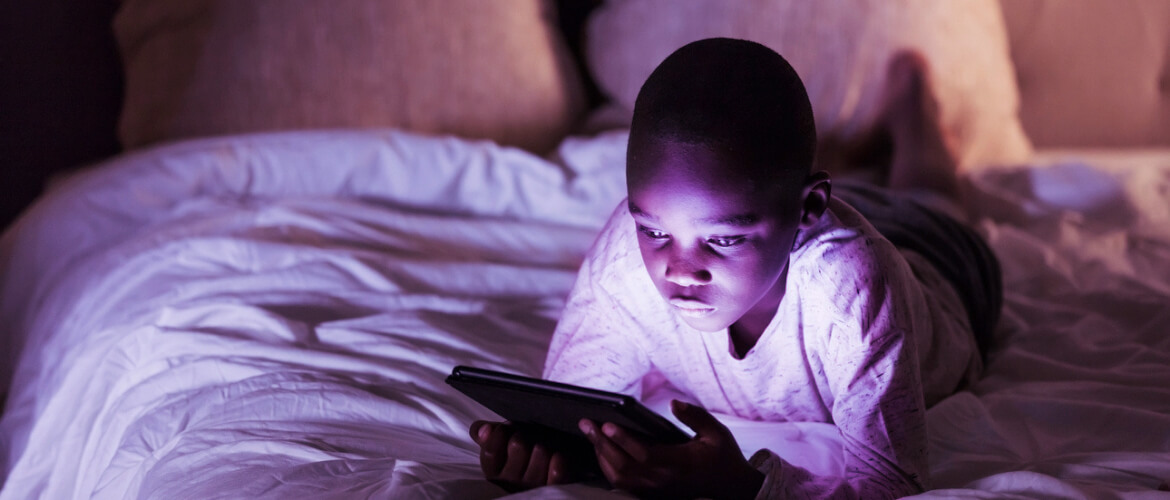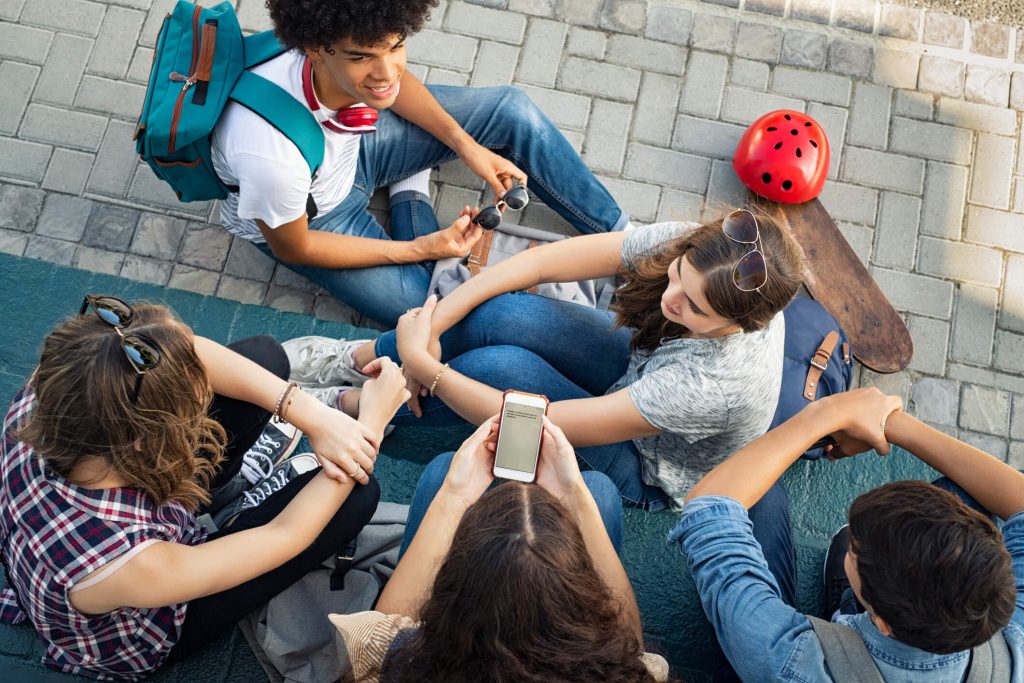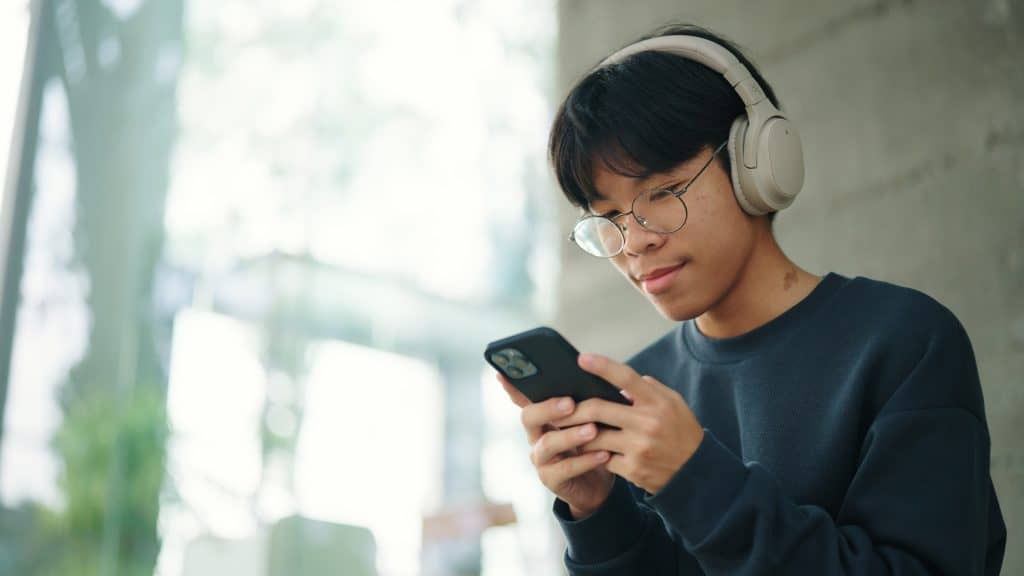The sad reality for nearly every adult who struggles with porn is that their compulsive porn use started in childhood. In the more than two decades I that have been working with hundreds of men and women trying to overcome pornography addiction, I have met only one who did not first start using pornography as a child.
Several studies show that when people are exposed to sexually explicit content during childhood or adolescence, they have a significantly higher risk of developing problematic pornography use later on.[1] Similarly, studies find the younger a child is when first exposed to pornography, the greater their consumption of pornography tends to be as adults.[2]
Exposure is usually accidental.
These studies are about children being exposed to pornography accidentally, not children looking for pornography on purpose. Most children, even those who become addicts, first see pornography by accident. In the case of online pornography in particular, the developing brains of young people are effected more strongly than that of adults.[3]
In one study of men and women who were in pornography recovery programs as adults, their average age of first exposure was found to be 9.66 years old for girls and 9.95 years old for boys.[4] That is awfully young to be exposed to hard-core video porn, which is what kids find these days.
Related: Mom of 6 Gets Real About Her Kids
Unfortunately, parents don’t always take this threat seriously. A youth pastor I spoke to recently shed some light on a possible reason. He told me, “Parents, have the tendency of thinking of their kids as younger than they really are.”
Parents may think their kids are too young to find pornography, but no child is too young to accidentally come across pornography today. This has always been true. I’ve counseled men who are seventy years old and first found pornography at age five.
Exposure can further curiosity.
Exposure to highly sexualized imagery creates curiosity and confusion in a child. When there is no parent helping the child process what they saw, they go look for more, but their developing brains simply aren’t up to the task of making sense of something like porn.
Longitudinal research demonstrates that searching for pornography has the most addictive potential of any kind of Internet activity, including video games.[5] Children find themselves quickly developing a compulsive habit of returning to porn that can easily grow into actual addiction.
Do you know someone who struggles with porn?
All of us have friends or relatives who struggle with pornography. One of the barriers that prevents our friends and relatives from being open about their struggles with porn is the fear that we will reject them. It is very likely that all of us have more friends and family who struggle with porn than we are aware of.
When we do find out someone we know struggles with porn we need to know how to respond. It helps to understand that their struggle with porn almost certainly began with accidental exposure as a child. Imagine your adult friend as a child feeling overwhelmed by exposure to sexually graphic content. This helps us find the empathy we need to support them.
They probably had no one to help them process what they were being exposed to as a child. Their brains were not sophisticated enough to resist something as alluring and intriguing as pornography. They were hooked before they knew it was possible to be hooked.
Our role as friends and family is to offer support and ensure that they feel included in our community. They will need Allies, and maybe even professional help, to resist porn, but they also need friends and family to support them. Our job is to make sure they are included and are not shamed for developing a problem before they were old enough to understand its severity.
Do YOU struggle with porn?
Many of us have had our own struggles trying to resist pornography as adults. We will need outside help with that, such as having an ally who knows our story. Allowing others to help us overcome shame is a critical step in that process.
One way to help remove shame is to talk to our childhood self. Maybe find a photo of the age you were first exposed to pornography. Look at yourself at that age and realize how young you were to have to experience something like pornography. I have a photo of myself at age nine that I sometimes look at when I need to feel empathy for my childhood self. Age nine when I was first exposed to porn by an older friend.
We can and should have empathy for that child who was us. That child who had no idea the impact of what we were seeing. That child who felt they could tell no one because the feelings inside felt too confusing and taboo. Having empathy with our childhood self is part of the process to leave porn behind.
Parents, protect your kids!
Hopefully, this information will inspire parents to want to evaluate and perhaps improve our efforts to protect our children against pornography exposure. We should have Covenant Eyes and parental controls on all computers and devices our child uses. We can set boundaries around where computers and devices can be used, where the screen is visible to parents. We can wait until our children are old enough before giving them their own Internet devices. I recommend no earlier than age 14.
When we do get devices for our kids, we restrict what they have access to and slowly give them more access as they prove they can handle what they have access to.
We should monitor the TV and movies they see. We can get to know families and their Internet rules before we allow our kids to spend time in their homes.
Many children are accidentally exposed to pornography when searching for answers about sex. They may not know pornography exists but find it when looking for answers to innocent questions about sex or words they have heard. We can help prevent this by talking with our children about sex and answering their questions. If they feel comfortable asking us about sex they don’t have to go to the Internet or friends for answers.
Related: Porn-Free Home: A Parent’s Survival Guide
Remember: children will see porn.
Even with all the protection we can offer, our kids will eventually be exposed to pornography. Pornography is simply too prevalent in the world today for our kids to never be exposed to it. We don’t have to fret about this if we prepare our children to know what to do when they see pornography. They need to know what pornography is and what to do if they encounter it.
In short, our kids need to know to get away from the source of porn and come talk to us. They need to know they will not be in trouble if they accidentally see something they believe is porn. Then we talk them through what happened and remove confusion and curiosity about what they saw.
Pornography addiction almost never starts in adulthood. The roots are planted in childhood by exposure to porn. The roots grow when there is no one to help process what we were exposed to.
We can and should have great empathy for adults whose childhood was hijacked by pornography. We should recognize that no child fully understands the harm that pornography does to them. We should have empathy for ourselves if early exposure is our story. Parents, aunts, uncles, and grandparents should do all we can to prevent pornography exposure in children. We should prepare children to come to us when they are exposed.
Let’s work together to care for the children exposed to pornography; including the ones who are now adults.
[1] Van Leijenhorst, L., Zanolie, K., Van Meel, C. S., Westenberg, P. M., Rombouts, S. A., & Crone, E. A. (2010). What motivates the adolescent? Brain regions mediating reward sensitivity across adolescence. Cerebral Cortex, 20, 61–69; Casey, B. J., Jones, R. M., & Somerville, L. H. (2011). Braking and accelerating of the adolescent brain. Journal of Research on Adolescence, 21(1), 21–33; Galvan, A., Hare, T. A., Parra, C. E., Penn, J., Voss, H., Glover, G., & Casey, B. J. (2006). Earlier development of the accumbents relative to the orbitofrontal cortex might underlie risk-taking behavior in adolescents. The Journal of Neuroscience, 26(25), 6885–6892.
[2] Sun, Chyng, Ana Bridges, Matt Ezzell, and Jennifer Johnson. “Pornography and the Male Sexual Script: An Analysis of Consumption and Sexual Relations.” Archives of Sexual Behavior 45, no. 4 (May, 2016): 983–94. doi:10.1007/s10508-016-0744-0.
[3] Owens, E. W., Behun, R. J., Manning, J. C., & Reid, Ro. Co (2012). The impact of Internet pornography on adolescents: aA review of the research. Sexual Addiction & Compulsivity, 19(1/2), 99-122. doi:10.1050/10720162.2012.660431
[4] Bentley, Lacy (2016) Gender & Childhood Pornography Exposure, Addiction/Brain Science
[5] G.J. Meerkerk, R. J. J. M. V. D. Eijnden, and H.F.L. Garresten, “Predicting Compulsive Internet Use: It’s All About Sex!” CyberPsychology & Behavior 91, no. 9 (2006): 95–103.








I fully believe that my addiction was a direct result of my early exposure to porn over 40 years ago. I am in no way excusing my behavior in anyway. I made the choices that fed my addiction. Over a year ago I was trapped in my addiction with no hope of freedom. I believed that I was evil and doomed to be a bad person. I finally saw the trauma and pain that I had inflicted on my wife. I chose to fight it from every angle. I started attending weekly 12 step group. I became more involved in my church’s men’s small group. I read anything that I could find on sex addiction. I gave up television, social media and limited my internet usage. I sought out therapy and after 5 therapist I found a CSAT. She had me dig deep and find the root of my addiction. We took a hard look at my childhood trauma and we resolved it with EMDR. It all started with sexual abuse and my early exposure to porn. I have a new life and a new healthier marriage now. I am a better person and better husband now. I am no longer stuck in my addiction because I chose to change my life to get a different outcome. I have read Mr. Capparucci’s book and it is a great resource. I have resolved my inner child’s pain and I don’t have to keep ahead of it. He is in the past and no longer has any control of me.